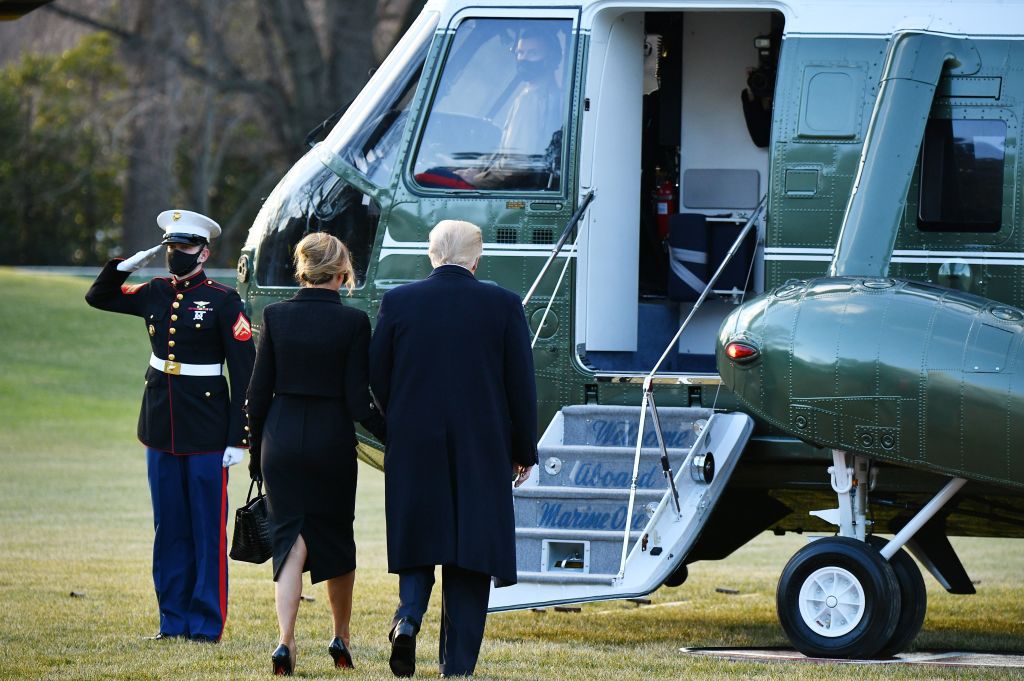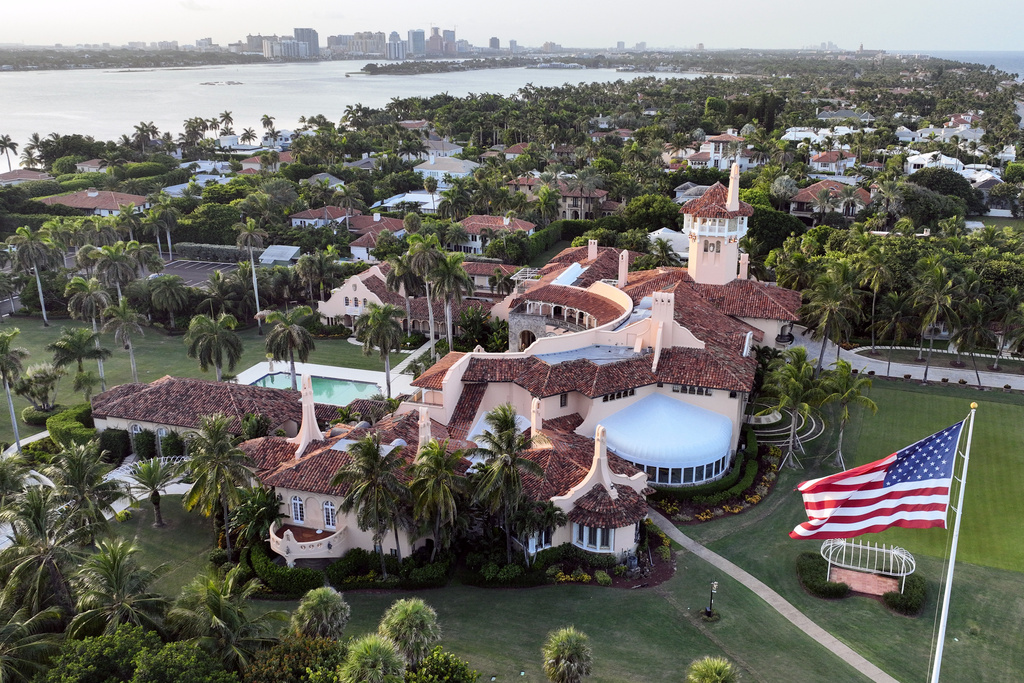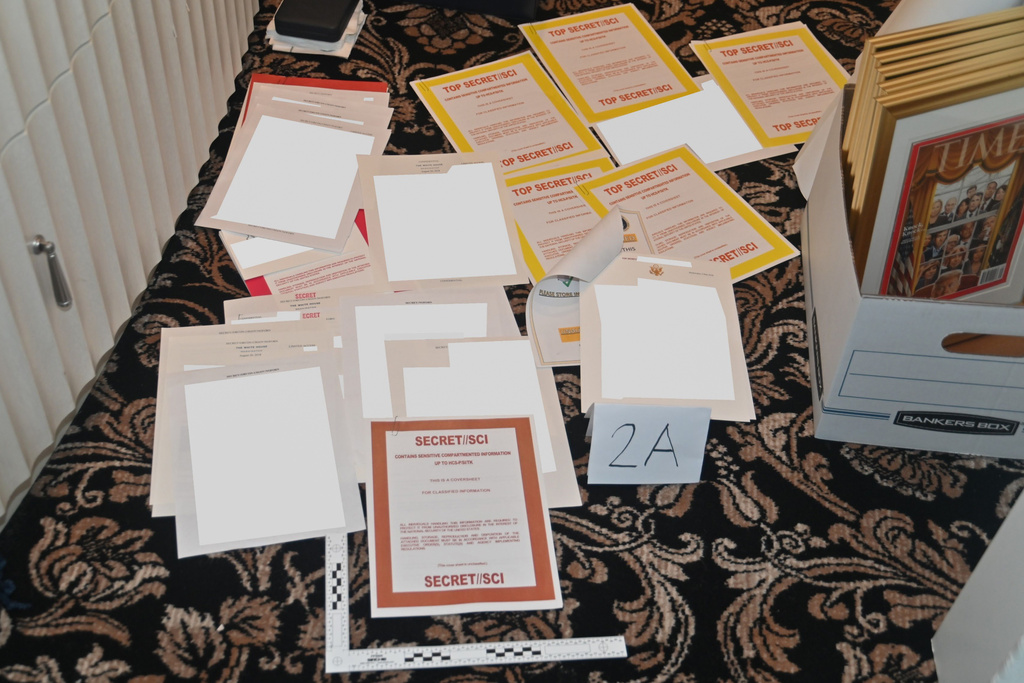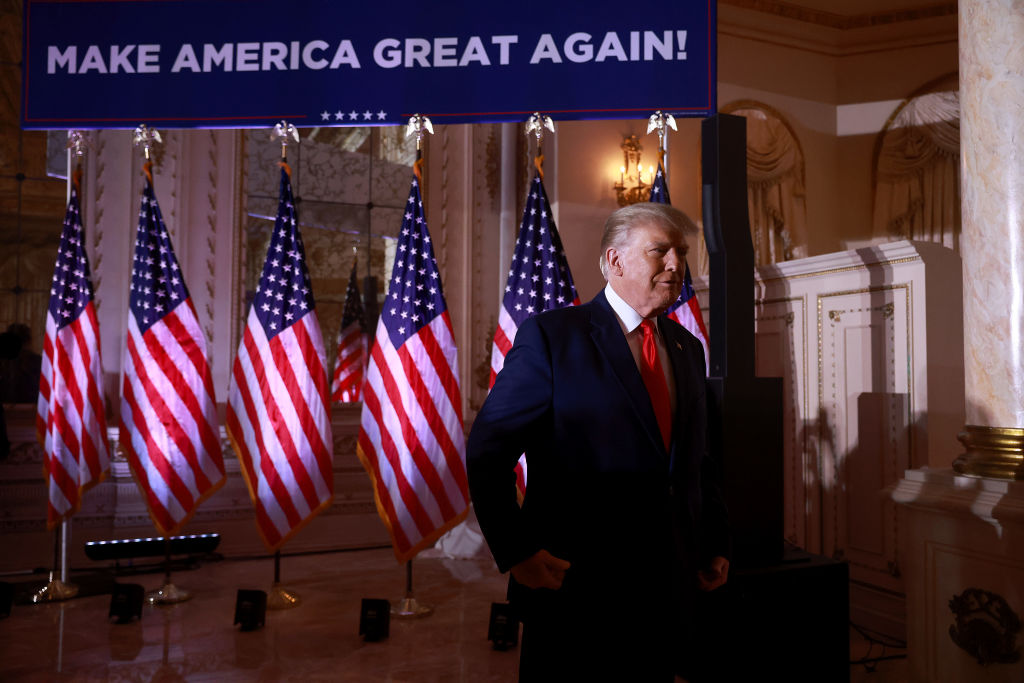The indictment brought by Special Counsel Jack Smith against Donald Trump marks the culmination of a two-year effort to figure out what government documents went with the former president when he left the White House — and whether any crimes were committed.
Filed under seal in federal court in Miami, the indictment was announced by Trump in a post on his Truth Social platform Thursday evening and confirmed by people familiar with the matter.
Read More: Donald Trump Was Just Indicted in the Classified Documents Case. Here’s What to Know
The unprecedented FBI search of Trump’s Mar-a-Lago home on Aug. 8, 2022, came after National Archives officials spent months trying to claw back records still in his possession. Trump’s lawyers and the U.S. Justice Department then wrangled in court over whether prosecutors could use the seized materials at all. A federal appeals court ended the fight in December, siding with the government.
More from TIME
Trump’s campaign filing in November signaling a third White House run prompted Attorney General Merrick Garland to appoint Smith as special counsel that month. As Smith settled in, the first half of 2023 saw a procession of grand jury witnesses, sealed subpoena fights and shakeups on Trump’s legal defense team.
Here are key milestones leading up to the indictment filed in federal court in Miami Thursday, as documented in public court filings and previous reports by Bloomberg News:
2021
Jan. 20
President Joe Biden is sworn in and Donald and Melania Trump depart Washington for their Mar-a-Lago resort home in Palm Beach, Florida.

May 6
The National Archives notifies former Trump White House lawyers of missing presidential records.
December
Trump representatives inform the National Archives that at least a dozen boxes of documents are ready to be picked up.
2022
Jan. 18
National Archives staff receives 15 boxes of White House records from Mar-a-Lago.
Feb. 9
A National Archives official alerts the Justice Department that documents marked as classified are mingled with other files in the boxes.
Feb. 18
The Archivist of the United States David Ferriero notifies the House Oversight Committee of the discovery of classified records.
April 12
The National Archives tells a Trump representative of its intent to share records with FBI.
April 29
Trump attorney Evan Corcoran requests the National Archives delay providing material to the FBI.
May 10
The National Archives rejects the request by Trump’s counsel to postpone producing records to the FBI.
May 11
Trump, through his attorney Corcoran, accepts service of a federal grand jury subpoena seeking any classified material in his possession.
May 16-18
FBI agents conduct a preliminary review of the 15 boxes retrieved from Mar-a-Lago in January, identifying 184 documents with classified markings.

May 25
Trump lawyer Corcoran writes a letter to a DOJ official defending the former president’s “good faith” effort to work with National Archives and disputing the grounds for a criminal investigation.
Read More: Classified Documents Get Misplaced All the Time. A Former National Archives Official Explains Why
June 3
Jay Bratt, the Justice Department’s counterintelligence chief, arrives at Mar-a-Lago with three FBl agents to retrieve a folder containing 38 more classified documents. They also tour a storage room, but aren’t allowed to look in boxes.
June 8
Bratt sends a letter to Trump’s counsel asking that the storage room holding the documents be secured.
June 24
The Trump Organization Inc., the former president’s company, receives a federal grand jury subpoena for surveillance camera footage from Mar-a-Lago.
Aug. 5
The Justice Department applies to U.S. Magistrate Judge Bruce Reinhart in Florida for a warrant to search Mar-a-Lago.
Aug. 8
FBI agents execute the warrant at Mar-a-Lago, removing 27 boxes and several other document collections containing 11 sets of classified materials.

Aug. 22
Trump files a request in federal court in Florida for a third-party special master to review the seized materials.
Sept. 5
U.S. District Judge Aileen Cannon in Florida enters an order temporarily barring DOJ from using the seized materials and granting Trump’s request for an outside review. U.S. District Judge Raymond Dearie in New York is later named special master.
Sept. 21
The 11th Circuit partially lifts Cannon’s injunction, allowing federal investigators to regain access to the classified documents but not the rest of the seized material.
Nov. 15
Donald Trump formally announces he is running for president in the 2024 election.

Read More: A Defiant Donald Trump Enters the Arena for Another Fight
Nov. 18
Attorney General Garland announces the appointment of Jack Smith as special counsel to lead the classified documents probe and a separate federal investigation into efforts to overturn the 2020 election.
Dec. 1
The 11th Circuit reverses Judge Cannon’s appointment of a special master and lifts the remaining injunction on DOJ’s use of the material seized from Mar-a-Lago.
December 2022/January 2023
Trump attorneys discover more documents with classified markings and turn them over to the Justice Department.
2023
January
Trump attorney Corcoran appears before a federal grand jury in Washington in connection with the classified documents probe.
Jan. 12
Following the discovery of classified records in Joe Biden’s Washington office and Delaware home, Garland announces the appointment of Robert Hur as another special counsel.
Read More: What to Know About the Special Counsel Investigation Into Biden Over Classified Documents
March 22
The D.C. Circuit rejects efforts by Trump and Corcoran to block the special counsel’s requests for Corcoran’s testimony and written work product.
March 24
Corcoran appears again before a federal grand jury in Washington. He recuses himself from work for Trump related to the criminal probe of alleged mishandling of classified documents.
April 26
Trump’s attorneys send a letter to the House Intelligence Committee requesting legislative intervention to halt the Justice Department investigation.
May 16
Trump attorney Tim Parlatore leaves the defense team.
May 23
Trump shares a letter on his Truth Social platform from his attorneys requesting a meeting with the attorney general.
Read More: Inside Trump’s Strategy to Turn Legal Woes Into a Political Advantage
June 5
Three of Trump’s lawyers — James Trusty, John Rowley, and Lindsey Halligan — go to the Justice Department headquarters in Washington for a meeting with senior officials, including Special Counsel Jack Smith, to discuss the status of the classified documents probe. Garland and Deputy Attorney General Lisa Monaco aren’t present.
June 8
Trump maintained his innocence in a Thursday night post on his Truth Social platform and said that he’s been summoned to appear at the federal courthouse in Miami on Tuesday.
“I never thought it possible that such a thing could happen to a former President of the United States,” he wrote.
More Must-Reads from TIME
- Caitlin Clark Is TIME's 2024 Athlete of the Year
- Where Trump 2.0 Will Differ From 1.0
- Is Intermittent Fasting Good or Bad for You?
- The 100 Must-Read Books of 2024
- Column: If Optimism Feels Ridiculous Now, Try Hope
- The Future of Climate Action Is Trade Policy
- FX’s Say Nothing Is the Must-Watch Political Thriller of 2024
- Merle Bombardieri Is Helping People Make the Baby Decision
Contact us at letters@time.com